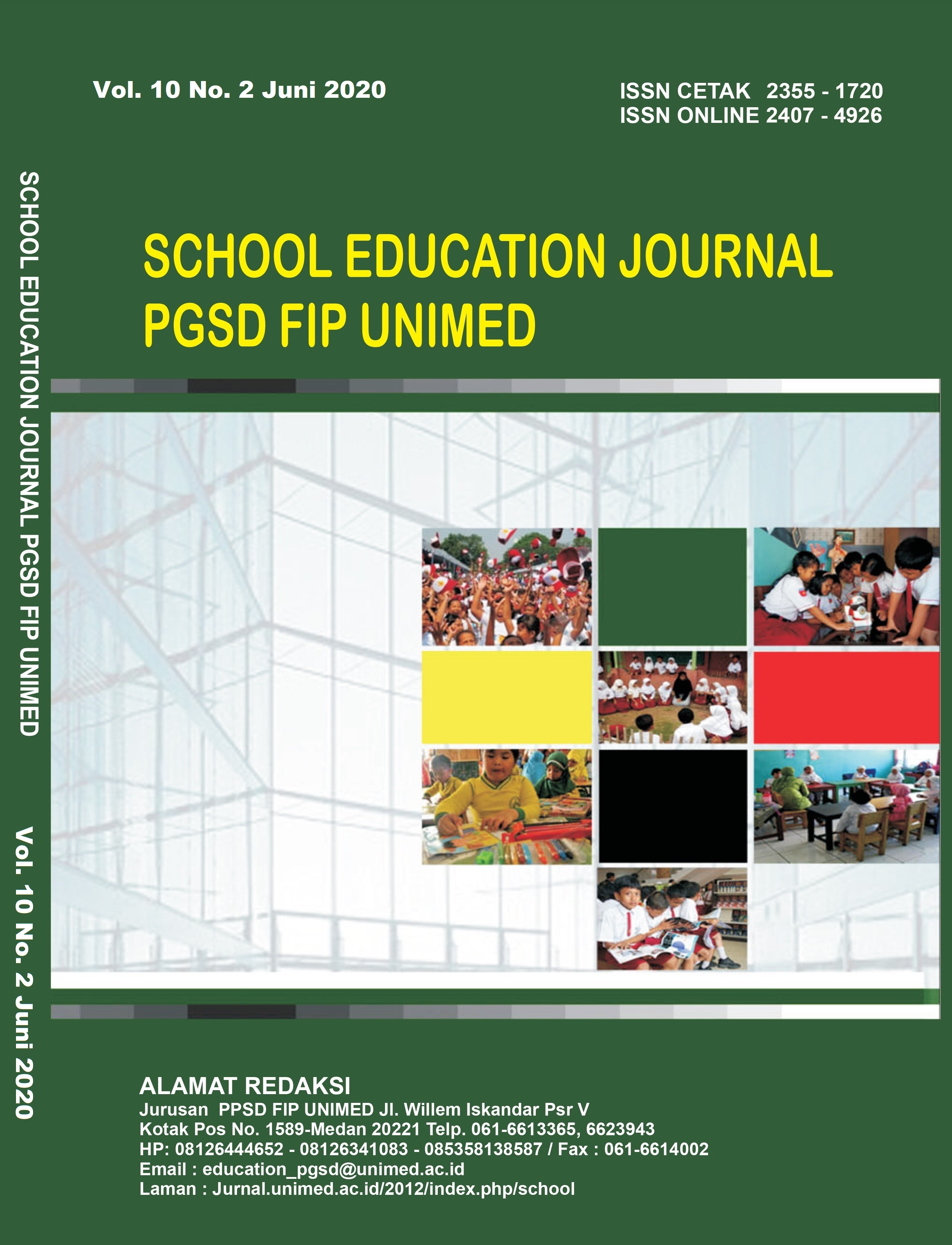ANALISIS KESALAHAN BERBAHASA INDONESIA DI SEKOLAH DASAR
DOI:
https://doi.org/10.24114/sejpgsd.v10i2.18801Abstract
This study aims to describe the mistakes in Indonesian language made by students in elementary schools in general. The focus of the study was conducted on language errors in writing skills in elementary school. This type of research is descriptive research. The data source in this research is searching relevant journals. The analysis technique used in analyzing language errors is qualitative data analysis techniques. The results showed that there were student errors in writing including: spelling mistakes (errors in writing basic words, mistakes in using capital letters, mistakes in writing prefixes, mistakes in writing prepositions, mistakes in abbreviated writing, and errors in punctuation), errors in word selection (use of words speech), and mistakes in sentence construction (incomplete sentences, ineffective sentences, and sentences containing interference). Thus, students 'mistakes in writing must be minimized as an effort to improve students' writing skills in elementary school.Keywords: Language errors, spelling, word selection, sentence organizationDownloads
Published
Issue
Section
License
Authors whose manuscripts are approved are approved as follows:
The publication rights for all journal manuscript materials published/published on the SEJ (School Education Journal) E-Journal site are held by the editorial board with the author's knowledge (moral rights remain with the manuscript authors).
The formal legal requirements for accessing this electronic digital journal article are subject to the terms of the Creative Commons Attribution-ShareAlike (CC BY) license, which means that E-Journal SEJ (School Education Journal) has the right to store, transfer media/format, manage in the form of a database, maintain, and publish articles without asking permission from the author as long as the author's name remains as the copyright owner.
Manuscripts published/published electronically are open access for educational, research, and library purposes.

